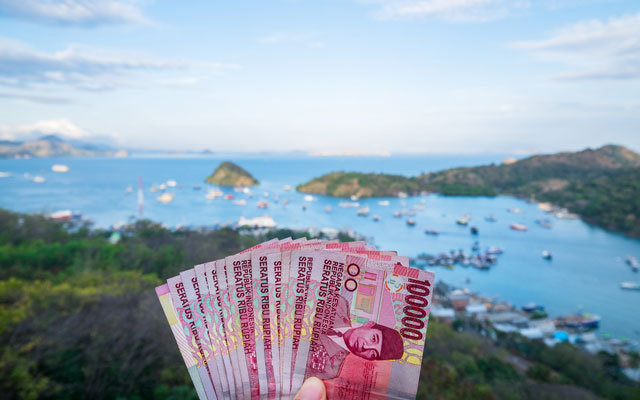In anticipation of impacts a weaker rupiah would have on outbound incentive business next year, event planners in Indonesia are now drawing up strategies to cope with rate fluctuations while keeping demand from corporates high.
The rupiah has declined from around Rp14,300 against the US dollar in early August to Rp15,000 on September 5, the weakest since the 1997 economic crisis.

Eddy Efendy, director of Synergy Production Travel and Events, commented: “It’s still difficult to predict the situation next year; we have to wait until December. But the incentive business is still fine for now.”
As the currency devaluation took place towards the end of the year, most groups this year have materialised, noted Eddy.
But event planners may soon begin to feel some pain from the rupiah’s downturn, as Indonesian agents typically quote in rupiah but make payments in the US dollar.
Pauline Suharno, managing director of Elok Tour, said: “Some clients understand the conditions and are willing to pay the balance due to the devaluation… The problem is many companies do not want to adjust the pricing.”
Rudiana, director of sales and marketing of WITA Tour, added: “The depreciation of the rupiah made conditions unstable. We find it difficult to determine prices, even though we must immediately submit proposals for incentives (programmes) next year.
“When the currency is not stabilised, the price balance becomes a problem,” he commented. “If the price is too high it will be difficult to sell, but if it is too cheap it also will reduce profits or even (be a) loss for planners.”
Compared with leisure travel, Rudiana said corporate incentives are more sensitive to a weaker rupiah.
“In a leisure tour programme, travellers have the option to alter itineraries to meet their budget. But for an incentive programme, everything is set from the beginning. If we promise to use a luxury bus or have dinner at a top-notch restaurant, we cannot change that (as these are perks for the clients).
Likewise, pricing is also the “most sensitive issue” for clients of Agustinus Pake Seko, president director of Bayu Buana, although the company has recorded a 15 per cent growth in business this year and bookings are still coming in for next year.
“(Clients) just want the cheapest package, but with rupiah depreciation it will be difficult. This is the challenge,” he pointed out.
To cope with the currency fluctuations, Agustinus would suggest to clients to exclude some meals from the itinerary, and let group members find their own.
“It is a win-win solution,” he remarked. “Without eating at a restaurant, prices will be much cheaper. Delegates will also have a more genuine local dining experience (by getting to pick what they’d like to eat).”
Elok Tour’s Pauline Suharno, meanwhile, would recommend a lower hotel category or a similar star-rated property outside of the city centre.
Another option is to cut the duration of the programme. She shared: “Nowadays, agents choose to cut costs by not hiring freelance tour guides. Agents are now maximising in-house staff to serve clients.”
Rupiah devaluation aside, a mounting concern for Eddy is potential political instability, as the national and presidential elections are due next year.
“If the rupiah continues to slide and the political situation is not conducive, business will be like falling down from a ladder,” he said.





















